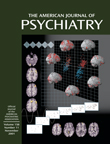The hidden prejudice is sanism. Other prejudices like racism, sexism, ageism, anti-Semitism, etc., are no longer hidden. It is the task of Michael Perlin in this book to expose sanism (again). The book is both scholarly and passionate, as befits a long-time writer, educator, and polemicist. Perlin is a professor at New York Law School and has served as director of public advocacy in New Jersey. He is the winner of the Manfred Guttmacher award for his book
The Jurisprudence of the Insanity Defense (1), which I had the opportunity to review for the
Journal (2).
Sanism stays hidden because the most liberal advocates for eliminating the other “-isms”—lawyers, judges, psychologists, and psychiatrists—perpetuate sanism. We base our actions on ordinary common sense in the face of substantial statistical evidence to the contrary. For instance, there is a common belief that many individuals are allowed to commit crimes of violence because of the insanity defense.
The use of pretexts (“pretextuality”) is widespread through the legal system. For instance, states pass laws to treat offenders in prisons but fail to hire professionally competent people to provide the treatment. Passing the law, consequently, is a pretext. Having established his basic premises of sanism and pretextuality, Perlin goes on to demonstrate how each area of mental disability law is affected by their presence.
He starts with civil commitment. The landmark cases of
O’Connor v. Donaldson (3), Jackson v. Indiana (4), and
Lessard v. Schmidt (5) are revisited. None of these decisions is sanist or pretextual, but the reality has not been a “robust” interpretation of these cases and is fraught with sanism and pretextuality. Perlin deplores the “morality” of mental health professionals, citing Paul Chodoff for “benevolent paternalism” and David Lamb for interpreting civil commitment laws too “literally.”
Perlin goes on to review the right to treatment, right to refuse treatment, right to sexual interaction (brave man), the Americans With Disabilities Act (too soon to evaluate), competence to plead guilty and to waive counsel (fine points for a forensic psychiatrist), and, in due course, the insanity defense. He notes the powerful effect of high-profile cases.
Here’s an example of Perlin’s range. I chose it from the chapter titled “The Right to Refuse Treatment,” in my state known as medication over objection, an area in which the practicing psychiatrist is frequently called upon to testify.
• Consider all the right to refuse treatment issues that are touched on by sanism and pretextuality.
• The attitudes of trial judges toward patients.
• The attitudes of counsel toward patients.
• The implication of courts articulating expansive remedies in class action litigation without providing counsel to represent patients in individual cases.
• The assignment of non-specialized counsel and uneducated judges.
• The failure of appellate courts to take seriously the pro forma quality and nature of hearings in many instances.
• The propensity of decision makers to make incompetent equivalent with makes bad decisions.
• The perception of positive relationship between implementing the right to refuse and failed deinstitutionalization policies.
• The perception of drugs as the only “cure” for “dangerousness.”
All psychiatrists should read Professor Perlin. We have a great deal to learn, and he is a superb teacher. Many of us may be infuriated by his polemics and feel for our illustrious colleagues who are portrayed in unflattering ways. However, which one of us is never a secret sanist or practitioner of pretextuality?

